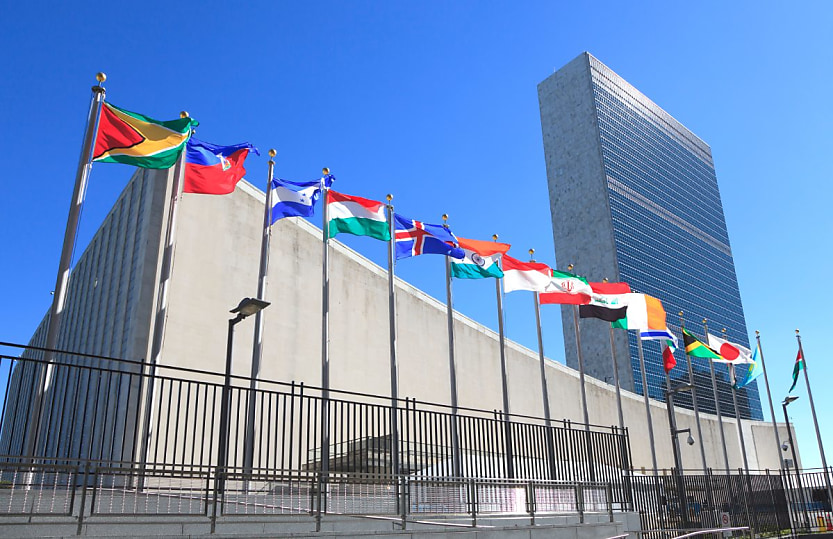Global initiative claws back US$2.3bn in taxes for developing nations

The Tax Inspectors Without Borders initiative aims to correct the devastating impact of the COVID-19 pandemic on the economic progress of developing nations by building efficient tax systems.
A global tax initiative of which the ATO is a partner administration has added $2.3 billion to the tax revenues of developing nations since its inception in 2015.
Tax Inspectors Without Borders (TIWB) is an international tax initiative designed to help developing countries to build more robust tax administrations.
Managed jointly by the OECD and UN, the TIWB program has helped developing countries to generate an extra US$2.3 billion in tax revenues and US$6.05 billion in tax assessments across 61 jurisdictions.
Beyond revenue impacts, the initiative has helped host nations to develop more robust tax legislation, administrations, and specialised units.
United Nations Development Programme administrator Achim Steiner celebrated these and other findings published in the TIWB’s annual report released on Tuesday, while stressing the size of the ongoing challenge.
“Tax collection rates are as low as 15 to 20 per cent of GDP in many developing countries – far below the levels needed to provide basic services like health or education and to invest in critical areas like poverty reduction, climate action, and the clean energy transition,” Steiner told the annual TIWB Stakeholders Workshop.
For context, the average tax-to-GDP ratio of OECD nations was 34.2 per cent in 2023 and 29.5 per cent in Australia. France’s ratio was the highest at 46.1 per cent, followed by Norway (44.3 per cent), Austria (43.1 per cent), and Finland (43 per cent).
“This unique initiative bridges the gap between governments and unique expertise on how to implement world-class tax systems,” added Steiner.
International tax audits and transfer pricing-related activities make up the brunt of the TIWB’s operations – including the provision of technical assistance in negotiating pricing agreements, mutual agreement procedure cases, and sector-specific audit expertise.
The TIWB recently launched pilot programmes to help developing nations with country-by-country reporting to help with multinational base erosion and profit shifting and transfer pricing risks.
Pilot programmes on tax administration digitalisation have recently been launched by the TIWB which, it said, can help to improve short-term efficiency, boost compliance, reduce taxpayer burdens, enhance taxpayer satisfaction, and reduce corruption.
The global minimum tax under Pillar Two of the OECD’s multinational tax reform package is a major opportunity for developing nations to claw back their taxing rights.
It has been estimated that the tax will add an additional US$155–192 billion in global tax revenues while shifted profits are estimated to fall by half over the long term.
By reducing incentives for profit shifting, it is expected that more profits will be recorded where MNEs conduct their economic activities, which the OECD said may “particularly benefit developing countries.”
Given the size of the opportunity, the TIWB has ramped up its Pillar Two assistance, including by putting experts in place to work alongside tax officials in host administrations.
Tax administration capacity building is seen as a crucial step towards achieving the UN’s Sustainable Development Goals (SDGs) which, the UN said, developing nations are “dangerously far from achieving.”
Global issues including climate change, conflicts, increasing costs of servicing public debts and rising interest rates, inflation and cost-of-living challenges, and illicit financial flows are creating what the UN refers to as the “great financing divide.”
The TIWB provides support through mobilising domestic revenues, assisting in the development and implementation of more efficient tax legislation, and helping to reduce tax crime.
Of its 130 concurrent programmes, 75 are spread across Africa, while Asia and the Pacific is host to 22 programmes. Latin America and the Caribbean host a collective 20 programmes while Eastern Europe hosts 13 programmes.
The TIWB partners with a range of tax administrations in delivering its services, including the Australian Tax Office, the Canada Revenue Agency, the US Department of Treasury, and similar agencies across the UK, Germany, India, Brazil and more.
OECD secretary-general and former Australian minister for finance, Mathias Cormann, welcomed the findings of the report, adding that the TIWB’s work on the Two Pillar Solution and transparency more broadly is ongoing.
About the author

